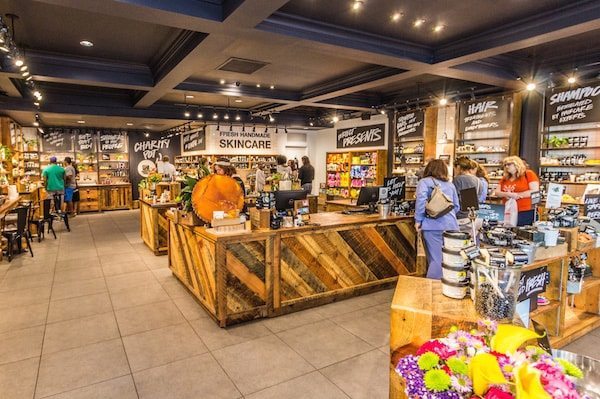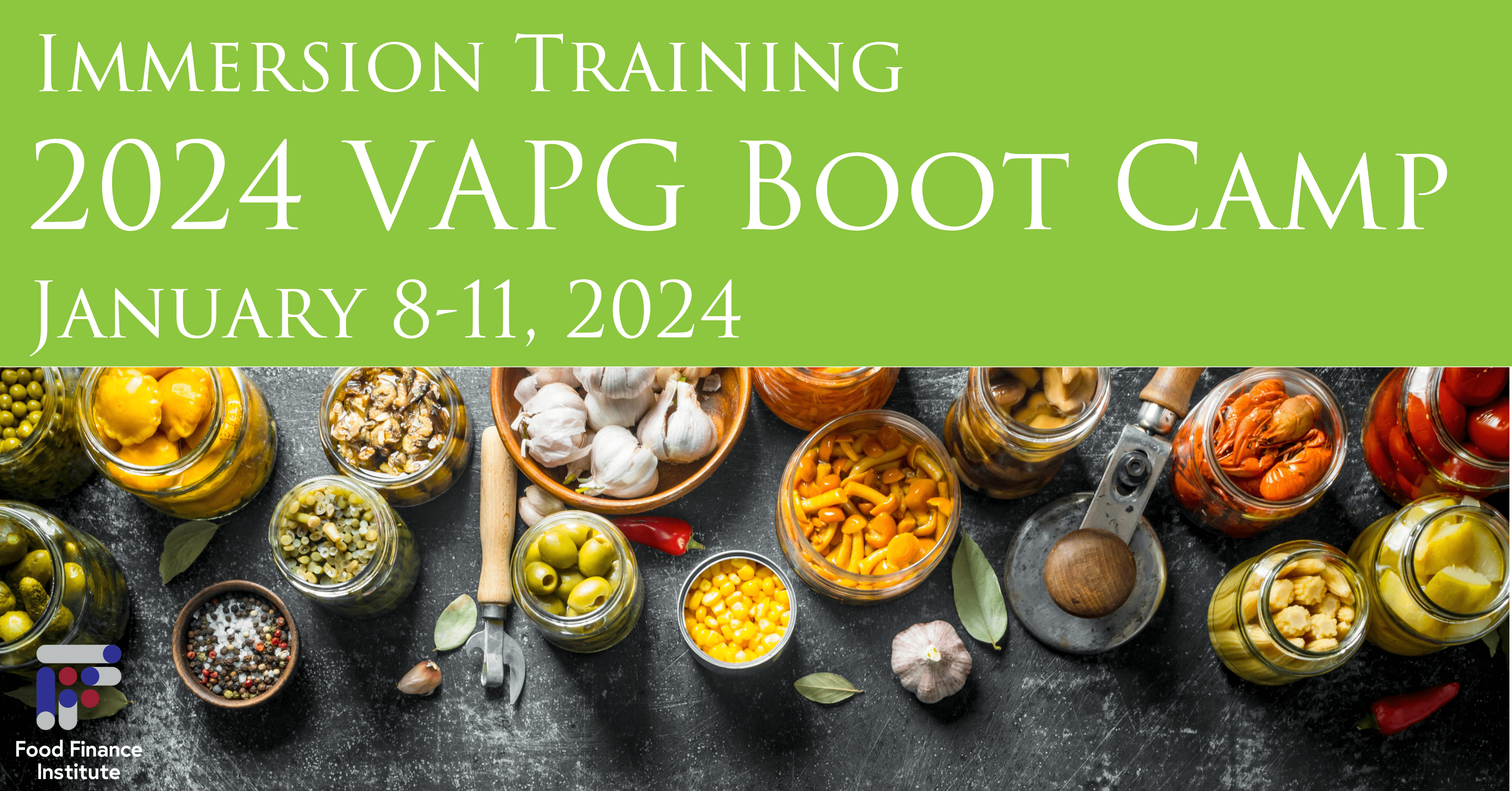Raising capital is one of the main reasons food entrepreneurs reach out to Edible-Alpha®. Because food businesses tend to grow in a stairstep function rather than incrementally, most food businesses need to raise outside funding to be viable and profitable. It can be a daunting and grueling process to raise capital while also trying to develop new products, acquire new customers and hire employees; thus, we have found even the best entrepreneurs need help to do it right.
There are lots of things that go into successfully raising capital. Extensive documentation is needed about the state of the current business. Food entrepreneurs have to come up with a financial plan that builds off their current financial statements and can withstand scrutiny from the people they are raising money from. This involves both creating extensively vetted financial projections as well as synthesizing the company’s business model into a concise but informative pitch and pitch deck. This is on top of the entrepreneur thinking through and discovering investors that align with their goals and accepting that outside investment changes the food business in fundamental ways.
Potential investors in food companies need this extensive work in order to understand the business model, the company’s growth potential and whether or not the business aligns with their investment goals. Food entrepreneurs, in sharing all of this documentation and having extensive conversations with potential investors, can feel like they are airing out their dirty laundry for everyone to see. Their fundamental assumptions about their business will be interrogated and challenged in seeking capital. And yet, this due diligence process is essential for entrepreneurs to mature their businesses into viable enterprises because the process forces them to get clear and articulate about how they make money and their goals.
On our podcast this week, Tim Keane of Golden Angels Investors talks about his and other investors feedback to entrepreneurs as part of the due diligence process and how that helps entrepreneurs better run their businesses and more effectively raise the right capital. Investors want to assess risk in the full execution of the business idea, interrogating the business model rather than solely the efficacy of the product. Essentially, Tim’s core questions to the entrepreneur are: how will you get paid, and when, and by whom? These questions help the entrepreneur understand the fundamental dynamics of their business and identify any potential cash flow issues.
Investor due diligence can feel like a grueling process for food entrepreneurs. However, the process of interrogating the business’ assumptions and activities can sharpen food entrepreneurs for the challenges they face in their business so they can grow for the long term.
And now, our roundup of the best food and beverage finance news, events and resources from around the web…
 Business Model Insights
Business Model Insights
- How to support your offline sales (New Hope Network) – “When it comes to advertising, the adage “less is more” is often appropriate. If you are reaching a smaller, but more qualified audience, it’s going to have a much higher impact than sending out millions of impressions to people who are never going to buy your product. In a market oversaturated with media, successful advertisers today must have the highest impact, online and offline.”
- To protect its business, Kroger is building an Amazon-style flywheel (Digiday)
- The Value Chain Constraint (Stratechery)
 Raising Capital
Raising Capital
- Managing Small Business Working Capital: Guidelines & Solutions (Investors Community Bank) – “Fully understanding all components of your working capital cycle is a matter of business viability, as it allows you to better manage your cash flow, and any small business expert will tell you that failing to plan and anticipate cash requirements is a leading cause of small business failure. It’s also an excellent indicator of your company’s efficiency and short-term financial health – positive cash flow is a sign that a business is well-positioned for expansion, growth or acquisition.”
- Why Startups Should Consider Venture Debt (FoodBytes)
- Building Trust Between Investors and Founders (BevNet)
CPG/National Brands
- Your customers are telling you who your next brand partner is (New Hope Network) – “Partnership marketing outperforms all other types of marketing, including your website and email marketing. Partnership marketing involves two or more companies working together to cross-promote each other’s products to like-minded audiences. But how do you decide which partners are right for you? And what activities should you engage in to showcase your product with a partner’s product? Start by ensuring you know your customers and what they care about. Ask yourself: 1) How do your customers use your product? 2) What do your customers value about your product? 3) What might surprise and delight your customers?”
- Seeking more control over brands, Amazon pulls the plug on thousands of vendors (Digiday)
- Can CPG Brands Monetize The Sharing Economy? (CB Insights)
Market Trends
- The problem with the way typical consumers shop (New Hope Network) – “You may be feeling pretty good about the number of doors you’re in or shelves you’re on. But: what are you going to do to create shopper interruption, to get discovered and drive trial? Unless you can answer with confidence, you should be very cautious how quickly you grow your distribution. You must recognize that retail grocery is not built for discovery. Rather, it’s built around the fact that as humans we’re both ritualistic and habitual creatures and if you don’t have plan to overcome that, you risk failure.”
- The 6 customer demands transforming contract manufacturing in 2019 (New Hope Network)
- Study reveals online grocery shopping will triple in the next decade (Refrigerated & Frozen Foods)
 Farming and AgTech
Farming and AgTech
- AgriFood Tech in 2018: $17bn in Funding (AgFunder News) – “AgriFood Tech startups — those innovating all along the food and ag supply chain — raised $16.9 billion in 2018, a 43% increase year-over-year growth, according to AgFunder’s latest investing report. There were several drivers at play contributing to the increase, not least the continuing maturation of agrifood tech as a venture capital asset class.”
- Lineages of Regenerative Agriculture (Propogate)
- “Basic Farm Tech Tools Won’t Provide VCs the Exit Returns They Need, So Why Are VCs Still Investing in Them?” (AgFunder News)
 Deals/M&A
Deals/M&A
- After cost cutting, Big Food builds its future on investing for growth (FoodDive) – “While executives remain laser-focused on keeping expenses in check, their attention is shifting toward innovating their portfolio through new offerings or building a product’s offering within a specific region. They are honing in on how they reach consumers both online and in-store, and investing in or purchasing faster-growing brands that are reflective of changing consumer preferences and consumption habits.”
- VC Firm Boulder Food Group Raises $100 million To Invest In Early-Stage Food And Beverage Companies (Forbes)
- How is the flood of investment funds reshaping the food & beverage space? (FoodNavigator USA)
 Industry Events
Industry Events
- SBA Emerging Leaders Initiative (SBA) – Free, 3/15 online application, program runs in multiple locations
- Food Waste Policy and Practice (WasteCap) – $, 3/19 in Madison, WI
- Rethink Agrifood Innovation Week (World Agritech Innovation Summit) – $, 3/19 in San Francisco, CA
- Buy Local, Buy Wisconsin Grants (Wisconsin DATCP) – $, 3/20 online
- Good Food Expo 2019 (FamilyFarmed) – $, 3/23 in Chicago, IL
- Pro Food Tech Conference 2019 (Association for Packaging and Processing Technologies) – $, 3/26 – 3/28 in Chicago, IL
- New Uses Forum 2019 (Agricultural Utilization Research Institute) – $, 3/27 – 3/28 in Minneapolis, MN
- FaB Safe Food Safety Certificate (FaB Wisconsin) – $, 3/27 in Madison, WI
- Farm Finance Workshop (Angelic Organics) – $, 3/30 in Caledonia, IL
- Online Course: Cultivate Legal Resilience Through Food Safety Law (Farm Commons) – Free, 4/30 Online
- Food Funded 2019 (Slow Money Northern California) – $, 6/6 in San Francisco, CA
- Nosh Live Summer 2019 (Project Nosh) – $, 6/10 – 6/11 in New York, NY
- Expo East 2019 (New Hope Network) – $, 9/11 – 9/14 in Baltimore, MD
- Food and Ag Ideas Week (Grow North MN) – $, 10/15 – 10/20 in Minneapolis, MN
- National Farm Viability Conference 2019 (Multiple Hosts) – $, 10/22 – 10/24 in Redwing, MN
- Good Food Financing and Innovation Conference (FamilyFarmed) – $, 11/3 in Chicago, IL
- Business Tax Basics (UW-Madison SBDC) – $, 11/19 in Madison, WI



